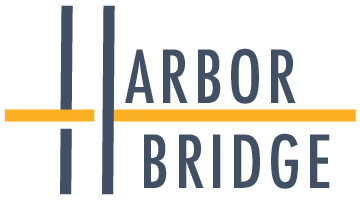Soft Skills Are Strategic: Why These Essential Skills Drive Results
Confession: I have an aversion to the term “soft skill.” While these skills may not be listed in job requirements, capabilities like communication, collaboration, adaptability, and emotional intelligence are anything but soft. They’re deeply influential across every level of an organization, and when they’re missing, it affects everything from team dynamics to decision-making and results.
Instead of considering these as “soft” or secondary skills, it’s time we reframe them for what they truly are: essential professional skills.
In today’s workplace, professional skills aren’t just a nice-to-have on top of technical expertise. They’re foundational and often the difference between an average team and one that’s high-performing, resilient, and capable of navigating complexity with confidence.
Read on to learn how these essential skills drive business results and how to treat them with the same seriousness and intention as any other strategic investment.
Why Soft Skills Are Actually Essential
Professional skills like communication, empathy, collaboration, and emotional intelligence aren’t new concepts, but they’ve become increasingly urgent and critical for personal and organizational success. Today’s business landscape is rapidly evolving with periods of growth, change, and complexity becoming more frequent, unpredictable, and intense. To stay competitive and resilient, organizations need to prioritize these skills just as intentionally as any technical capability.
When developed and applied strategically, these skills fuel stronger, more effective teams. For example:
Clear communication and active listening help teams align faster and avoid costly misunderstandings.
Relationship-building is essential for navigating interpersonal dynamics and helps managers support their teams more effectively—especially during the uncertainty of growth, restructuring, or shifting priorities.
Collaboration and adaptability lead to greater productivity, innovation, and resilience when plans shift or challenges arise.
According to Gallup, managers influence up to 70% of the variance in employee engagement, largely because of their ability to listen, give feedback, build trust, and lead through ambiguity. These aren’t soft, peripheral traits – they’re core competencies that directly impact how well your organization performs under pressure, scales with intention, and sustains a healthy, engaged workforce.
Professional Skills Can (and Should) Be Strategically Developed
While some professional skills come more naturally to people, they are capabilities that anyone can learn and can be deepened and expanded over time, no matter where someone starts. With the right development approach, they can be sharpened, strengthened, and aligned with strategic outcomes.
In his talk “Most Leaders Don’t Even Know the Game They’re In,” Simon Sinek points out that leadership and the interpersonal capabilities that underpin it aren’t just characteristics: they’re competencies and learnable.
With intention and guided development, people can become more empathetic, better communicators, and more effective collaborators.
That’s why it’s no longer enough to view soft skills as rounding out a professional’s toolkit. When deliberately trained and reinforced, these skills become high-leverage tools for driving results. They empower people to lead more effectively, collaborate more productively, and respond to challenges with confidence and clarity.
The Business Impact of Strategically Developed Essential Skills
Developing essential skills isn’t about feel-good culture work or improving relationships. It’s about performance.
Organizations that invest in professional skills training report:
● Increased employee engagement and significantly lower turnover
● Faster decision-making and more aligned execution across teams
● Greater resilience during times of change, from reorgs to rapid growth
When teams can address conflict before it escalates, adapt quickly to shifting priorities, and maintain clarity under pressure, everything changes from the quality of their output to the trust they build across departments.
How to Implement Effective Professional Skills Development
Building professional skills across your organization takes more than good intentions. It requires a thoughtful, structured approach grounded in best practices. The most impactful development efforts include:
Training that meets people where they are: Start with learning needs assessments to understand current capabilities and surface the real gaps.
Ongoing coaching: Coaching provides a structured, confidential space for reflection, real-time problem-solving, and growth.
Action planning: Make sure every session includes clear next steps—like Harborbridge’s Putting it in Motion approach—so skills are not just discussed, but applied immediately.
The most effective learning and development providers bring all of this together: blending training and coaching, tailoring programs to different role levels and learning needs, and focusing on real-world application with measurable results.
When done well, essential skills development isn’t a side effort—it becomes a core part of your company’s growth strategy.
Strong Teams Don’t Happen by Accident
When the only constant is change, it’s not just technical expertise that sets teams apart, it’s their ability to communicate, build trust, navigate conflict, and stay aligned and moving forward in a world that rarely stands still.
If you’re ready to equip your people with the skills that drive better performance, stronger teams, and real business outcomes, we’d love to connect.
Harborbridge helps organizations turn essential skills into everyday strengths—through practical, people-first training and coaching that gets results.
Let’s talk about how we can support your team. Schedule a call today.
